By Nirvikar Singh, Director of CAFIN and Distinguished Professor of Economics
Note from the Co-Directors
Galina Hale and Nirvikar Singh
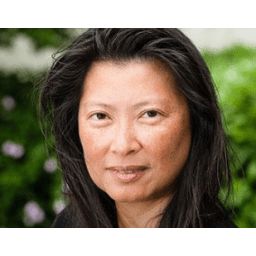
As always, we want to use this annual newsletter to share our past activities and future plans with you. We particularly want to draw your attention to a new speaker series for 2021-22, with a focus on finance and sustainable development (see later in the newsletter), and to welcome June Ou, COO and Co-Founder of Figure Technologies, as a new member of our advisory board. Given all that the world has been through in the past year, we also want to express our hope that all of you who read this are doing well, and to wish you and your families and friends a safe and secure future.
For the full version of this newsletter (PDF), click here.
Financial Risks, Innovation and Inclusion in a Post-COVID World
With the onset of the novel coronavirus pandemic in March 2020, CAFIN was forced to postpone its planned workshop in partnership with UC Investments. Instead, we jointly organized a webinar series: Financial Risks, Innovation and Inclusion in a Post-COVID World (see the webinars from 2020 to 2021), with the following description.
The economic crisis associated with COVID-19 pandemic has altered all aspects of our lives. In a new CAFIN speaker series, we will focus on financial challenges and developments. Among the questions that are relevant are: What are the risks to the global financial system in the medium to long run? Is the banking system robust enough? What kinds of future policy interventions might be necessary? What changes to payment systems and other financial innovations have been accelerated by the crisis? How do contagion control policies affect populations that are traditionally underserved by the financial sector? Will financial inclusion be more difficult to achieve after the pandemic?
A total of 11 webinars were held in Fall 2020 and Winter 2021. Topics covered included the state of emerging market economies, the behavior and performance of asset markets and their connection to the real economy, innovations in finance such as digital currencies and decentralized exchanges, and financial inclusion in the US and globally.
Webinar videos, slides, and papers presented are available here.

2021-22 Speaker Series
CAFIN and UC Investments are planning to continue the speaker series in the coming academic year. The new set of webinars will focus on issues related to the interaction between the financial system and sustainable development goals: environmental, social, and governance (ESG). A subset of the talks will focus on financial sustainability, green finance, and, more generally, the role of the financial system in combating climate change. We hope to also touch on the issues related to the measurement and reporting of ESG sustainability by financial institutions.
CAFIN Co-Director Professor Galina Hale will take the lead in organizing this new series. Professor Hale previously played a role in a Federal Reserve Bank of San Francisco conference on the economics of climate change, held in 2019. The goal of the conference was to promote understanding of the implications of climate change for the financial sector and the broader economy. A flavor of the issues can be found in Hale et al. (2019) and Hale (2020).
References
Hale, Galina B., Òscar Jordà, and Glenn D. Rudebusch (2019), The Economics of Climate Change: A First Fed Conference, FRBSF Economic Letter, 2019-31 | December 16, Federal Reserve Bank of San Francisco.
Hale, Galina B. (2020), What Are the Financial Risks From Climate Change?, Econofact: Environment, January 21.
Spring 2021 CAFIN Lecture
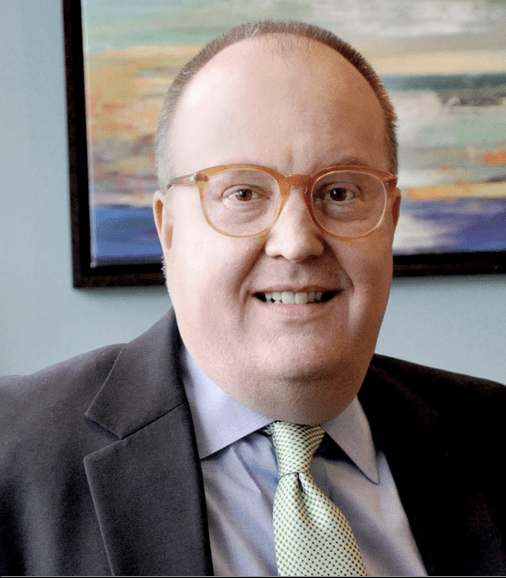
We resumed our quarterly lecture series in the Spring of 2021 with a lecture by Jim Dowd, CEO, North Capital Investment Technology on Blockchain and Finance.Mr. Dowd explained the idea of a blockchain, and its uses in finance, including for distributed ledgers, and he described the global ecosystem and landscape of blockchain startups. He also discussed legal and regulatory issues. Blockchain and Finance talk downloads are here.
Financial Education Update
Cowell 52: Personal Finance and Investing, the survey course on managing young adults’ finances, continues to gain traction in enrollment through word of mouth. Popularity in the course is driven by its accessibility to non-economics majors and its effectiveness in reducing the anxiety around financial topics. Students leave the course with a financial tool kit and confidence in tackling personal financial decisions.
Having received a UCOP Grant to create the online version in 2019, the UCSC-based course is offered throughout the UC system. The 2020 summer session had the largest enrollment in the history of the UCSC summer sessions, pulling in students from throughout the UC system and high school students.
The course is considered a “best bet” for high school students taking their first steps into University life and is helping to build a pipeline into the UC System.

Personal Finance and investing will continue to be offered in the Winter Term and Summer Session through the 2022 academic year by Patricia Kelly (course designer and instructor). Patricia also shared the following background on the high school program, from Monica Parikh, Director of UC Santa Cruz Summer Session:
“They [high school students] went through an extensive review, including proof of academic strength and a required signed form from their school counselor or principal. Some have sent us transcripts and AP scores, others are enrolling where prereqs/restrictions are lifted. We put significant effort into guiding them, providing lists of lower-division ‘best bets’ compiled by the Office of Advising Coordination. They are identified and treated as current UCSC students, with identical access to services and resources like the libraries and LSS. As minors, students and their parents have also signed and submitted extensive packets (reviewed by UCSC risk management and campus counsel) including FERPA, UCSC code of conduct, Internet usage, and waiver of liability agreements. The past five years inviting high schoolers into our classrooms produced outstanding results, including an enhanced pipeline to the UCs, great word-of-mouth marketing for us, and super proud parents”
Upcoming CAFIN-SFSU-SF Fed Conference, “Social and Systemic Aspects of Fintech: Market Design, Inclusion, and Risks”
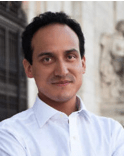
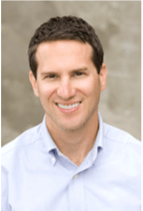
Kristian Lopez-Vargas, CAFIN Steering Committee member, is co-organizing the conference with CAFIN Research Affiliate Todd Feldman of the Lam Family College of Business at SFSU, and CAFIN Co-Director Galina Hale. The conference will be held in February or March 2022, in San Francisco. A formal call for papers will go out soon. A description of the conference follows.
The speed at which the global financial landscape is changing is accelerating. Computing power and communication technologies have already reshaped the financial system and are now facilitating game-changing technologies such as blockchain and cryptocurrencies. However, while these technologies and approaches can enhance financial access globally and limit systemic risk, they also bring potential costs. The reality is that this new financial environment is under development as we speak in a faster and more decentralized manner than any financial architecture we have built before. Yet, we have a limited understanding of its potential benefits, risks, and costs. We acknowledge that important debates, including energy consumption, efficient and fair regulation, market design for blockchains-based markets and crypto ETFs, central banking with digital currencies, among others, need more research and discussion. More knowledge and debate are critical to developing a safe, fair, efficient, and transparent digital financial system. To contribute to this conversation, in this conference, we bring together top experts and leaders from all three sides, policy, industry, and academia, to discuss the current state and potential of FinTech and its role in global financial markets.
Market Design Research Project Update
Kristian Lopez-Vargas, CAFIN Steering Committee member, provides the following update on CAFIN’s flagship research effort.
Flow Trading in the Laboratory
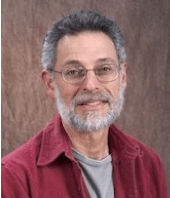
Continuing the theoretical and experimental study of innovative financial market designs (Aldrich and Lopez Vargas, 2020; Aldrich and Friedman, 2019), CAFIN members Dan Friedman and Kristian Lopez Vargas are conducting an experimental study of flow trading in financial markets. This market design was proposed by Kyle and Lee (2017), and Budish, Cramton, Kyle, Lee, and Malec (2021). In flow-trading markets, agents submit persistent flow demand and supply curves to trade in shares per second. Then, call auctions are held in regular per-second pulses (as in Budish, Cramton, and Shim, 2021). This new institution exhibits several theoretical benefits. It reduces bid-ask spreads, allows all executable orders to trade simultaneously at uniform prices, eliminates the arms race for fast communication technology, and enhances transparency. Additionally, its market-clearing prices and quantities are always unique, and calculating them is computationally cheap. To our knowledge, our experimental study will be the first empirical investigation of this newly proposed market institution.
References:
Aldrich, E., and Friedman, Daniel, (2019). Order Protection through Delayed Messaging. UC Santa Cruz Working Paper.
Aldrich, E., and Vargas, K. L. (2020). Experiments in high-frequency trading: comparing two market institutions. Experimental Economics, 23(2), 322-352.
Budish, E., Cramton, P., and Shim, J. (2015). The high-frequency trading arms race: Frequent batch auctions as a market design response. The Quarterly Journal of Economics, 130(4), 1547-1621.
Budish, E., Cramton, P., Kyle, A., Lee, J. and Malec, D. (2021). Flow Trading. U of Maryland Working Paper.
Kyle, A. and Lee, J., (2017). Toward a fully continuous exchange, Oxford Review of Economic Policy, 33(4), 650-675.
Acknowledgments
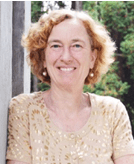
CAFIN wishes to acknowledge the generous support of Professor Katharyne Mitchell, Dean of the Division of Social Sciences at UCSC, and the assistance of her staff, including Pamela Dewey, Joni White, and Stella Yi, as well as the assistance of Kristin Palma and Diana Hogue of University Relations.
